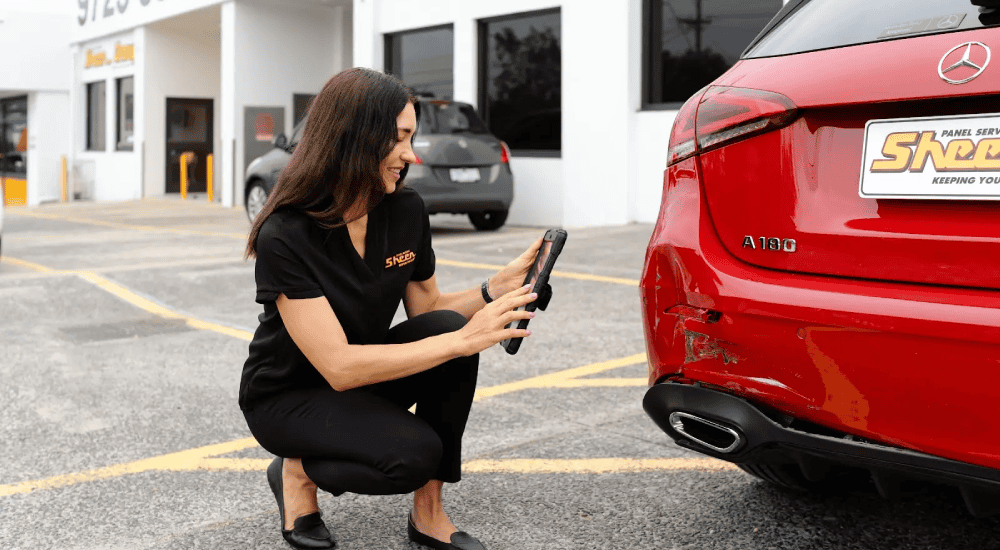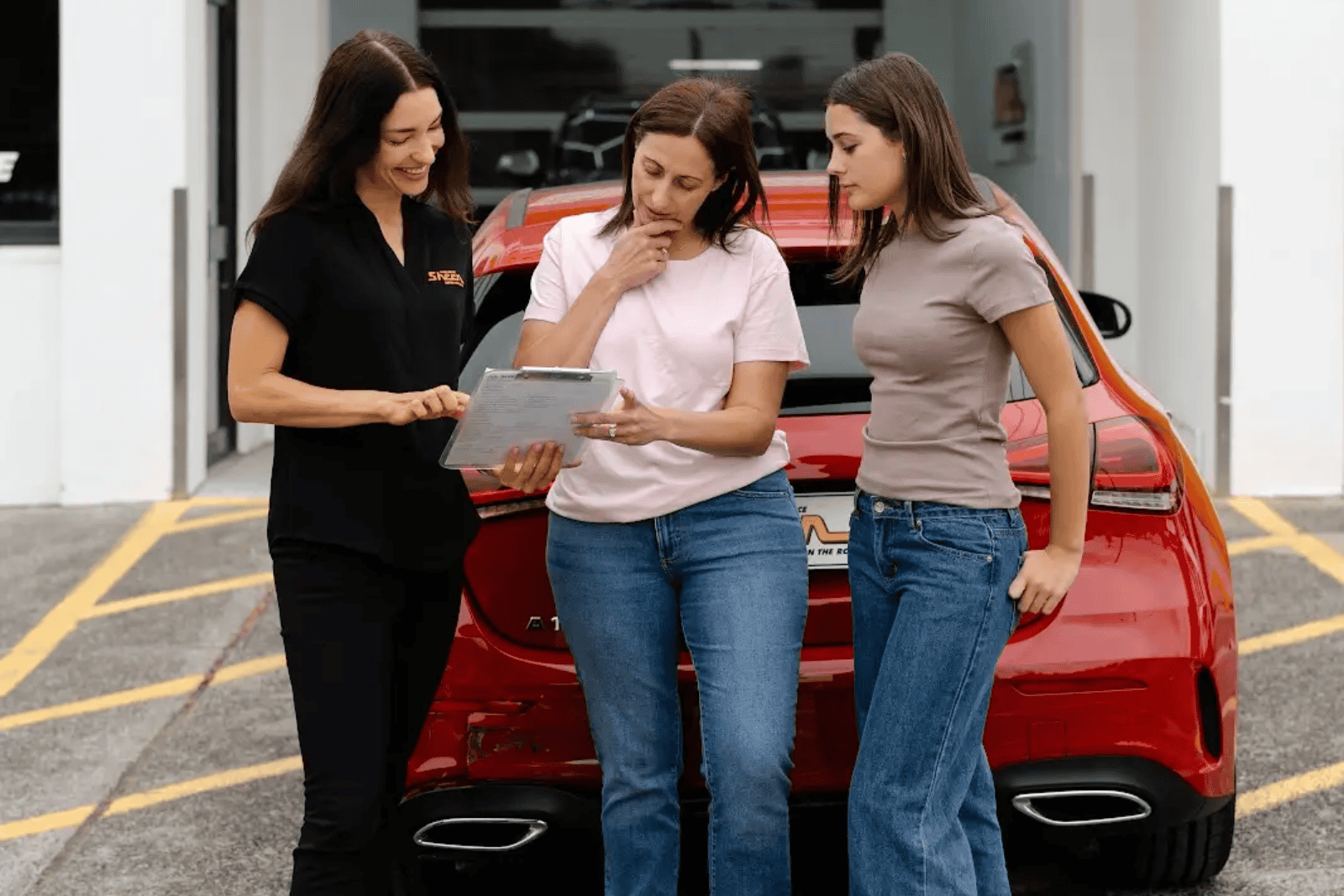Sheen Resources


Car insurance policies can seem overwhelming at the best of times. It's important to read the Product Disclosure Statement (PDS) before signing any official documents. If there are two clauses relating to an accident, and one is an exclusion, then the exclusion wins.
We’ll help you clearly understand car insurance exclusions
Whether you've just renewed your car insurance or you're shopping around, it's easy to overlook the fine print that can make or break your cover, especially when it comes to understanding your insurance premium and what's actually included in your policy. One of the most important aspects of any policy is understanding what isn't covered. These are the car insurance exclusions that could affect your ability to make a car insurance claim and leave you without support when your car is damaged. That knowledge can also help you compare car insurance effectively and choose the right policy for your needs.
The importance of knowing what your insurance doesn’t cover has never been greater. According to the Insurance Council of Australia, repair bills now account for roughly 60 per cent of claim costs, significantly driving up premiums for Australian motorists.
At Sheen Panel Service, we've worked with thousands of drivers across Melbourne and beyond. Our team sees firsthand how common exclusions can catch people off guard. That’s why we’ve created this practical guide: to help everyday drivers understand the risks, avoid costly mistakes, and feel more confident about their cover.
By knowing what exclusions apply (and why), you’ll be better prepared to protect your car, your wallet, and your peace of mind. It’s one of the best ways to avoid unexpected out-of-pocket costs and make sure your insurance provides coverage when it matters.

What are car insurance exclusions?
Car insurance policies can be complex, and it's easy to overlook the details that could affect a future claim. One of the most important parts of any policy is the list of car insurance exclusions: situations, uses, or conditions that aren’t covered by your insurer. These are outlined in your Product Disclosure Statement (PDS), and if there are two clauses that seem to apply to a situation, the exclusion usually takes precedence.
In short, an exclusion is something your insurer won’t pay for. Sometimes these are obvious; others are buried in the fine print. Knowing them upfront can help you avoid nasty surprises later.
The 4 main types of insurance cover, and what they don’t include
There are four main types of motor vehicle insurance in Australia:
- Compulsory Third Party (CTP): Mandatory for all vehicles. It only covers injury to others, not damage to vehicles or property.
- Comprehensive Insurance: Covers damage to your car and others, theft, weather, fire, and vandalism, but has many exclusions depending on the policy.
- Fire and Theft Only: Covers fire damage and theft but not collisions, and typically excludes damage to your vehicle caused by accidents or misuse.
- Third Party Property Only: Covers third-party property damage, such as another person’s vehicle or fence, but does not include cover for your own vehicle.
Even the most comprehensive policy has limits. For example, your comprehensive cover may include accidental damage, but not cover if your car is used for ridesharing or racing. Whether you're comparing car insurance options or choosing the right type of car insurance for your needs, it's essential to understand exactly what each policy includes and what it doesn’t.
[upload_smash][/upload_smash]
Common comprehensive car insurance exclusions in Australia
Even with a comprehensive car insurance policy, there are circumstances where your claim can be denied. These exclusions are important to understand, not just because they affect your ability to get reimbursed, but because they reflect the real risks insurers are managing. From what you do behind the wheel to how you maintain and use your vehicle, these details matter. In this section, we cover the most common exclusions that apply across Australia so you can stay informed and protected.
Driving under the influence
Driving under the influence of alcohol or drugs (including certain prescription medications) is a major exclusion. Even if your Blood Alcohol Content (BAC) is under the legal limit, signs of impairment can still affect your claim. This applies to both illicit and legal substances, such as strong sedatives or pain medications.
Using the wrong fuel
Misfuelling your vehicle (e.g. putting unleaded petrol into a diesel engine) is usually considered mechanical damage, which many insurers don’t cover. Unless your policy explicitly includes misfuelling cover, you’ll likely be out of pocket.
Unroadworthy vehicles
Insurance generally won’t cover damage if your vehicle is unroadworthy. This includes having bald tyres, broken lights, or modifications that don’t meet state guidelines. In Victoria, the VIC Roads Guide to Modifications outlines what’s legal and what can void your insurance. These rules are especially relevant for drivers in Melbourne, where modifications and roadworthiness checks are common issues, especially when your damaged car needs to meet legal safety requirements before it can be driven or repaired.
Restricted drivers
If your policy restricts who can drive your vehicle (e.g. over 25 only) and someone outside that restriction is behind the wheel during an accident, your claim may be rejected or incur a higher excess.
Rideshare use
Most comprehensive car insurance policies exclude use of the vehicle for monetary gain, which is a common point of confusion among comprehensive car insurance customers. If you're earning money through rideshare or delivery driving, this may not be covered under your current plan. Unless your cover specifically includes rideshare use, claims made during such activities may be denied.
Dishonesty or non-disclosure
Insurers require full disclosure of relevant information. If you leave out details or provide misleading information when applying for a policy or making a claim, your insurer can reduce or deny your claim entirely.
Illegal modifications
Modifying your vehicle in a way that breaches road rules or isn’t declared to your insurer can void your cover. This includes suspension changes, oversized wheels, engine enhancements, or other non-compliant changes that don’t meet VIC Roads standards. If you're unsure whether your modification will affect your policy, speak to your provider before you insure the vehicle.
Improper use of the vehicle
Using your car in a way not covered by your policy (such as racing, off-roading, or participating in track days) is typically excluded. Most policies define "improper use" clearly, and breaching this may leave you without coverage.
Failing to secure the vehicle
Leaving your car unlocked, unattended with the keys inside, or parked in an unsafe location could void theft-related claims. Insurers expect you to take reasonable precautions to prevent loss or damage.
Always check the PDS for exclusions
Your Product Disclosure Statement (PDS) is where all your exclusions are listed in full. Don’t assume something is included just because it sounds standard. There are often limits and exclusions that vary depending on the insurer and the policy, so it's important to read the policy carefully and know the policy details before committing. Look closely at sections relating to:
- Driver behaviour (alcohol, licence status)
- Vehicle condition and modifications
- Usage (rideshare, business, off-road)
- Security expectations
Your PDS is available online, through your customer portal, or by request. Always make time to read the Product Disclosure Statement carefully, as it explains your cover in full and helps you make informed decisions when you get a quote. It’s worth reading before you buy or renew.
[sheen_usps][/sheen_usps]
Need to make a claim? Let Sheen's insurance team handle it.
If you need repairs after an accident, your choice of repairer can make a big difference, not just in the quality of the work, but in how smoothly your insurance claim is handled.
At Sheen Panel Service, we have a dedicated in-house insurance team that works directly with your insurer.
We help you understand what your cover includes and excludes, provide advice based on your insurance history, and make sure all drivers on your policy are correctly listed. We’ll manage the paperwork and advocate on your behalf, saving you time, stress, and guesswork. For many of our clients, this support is a massive relief during an already challenging time.
We also offer:
- A free panel beating quote within the hour (or you can get a quote online anytime)
- Help getting the rental car you're entitled to, whether it's a rental car of a similar size or one arranged due to a total loss or lengthy repair
- 24/7 car towing services
- A wide range of free accident replacement vehicles
- A lifetime guarantee on all repairs
Whether you're dealing with a minor dent or a major repair, we help make sure you're covered, informed, and confident every step of the way. We know how to navigate motor insurance paperwork and can help replace your car or arrange support if your car is stolen or written off.

.png)


.webp)


.webp)











